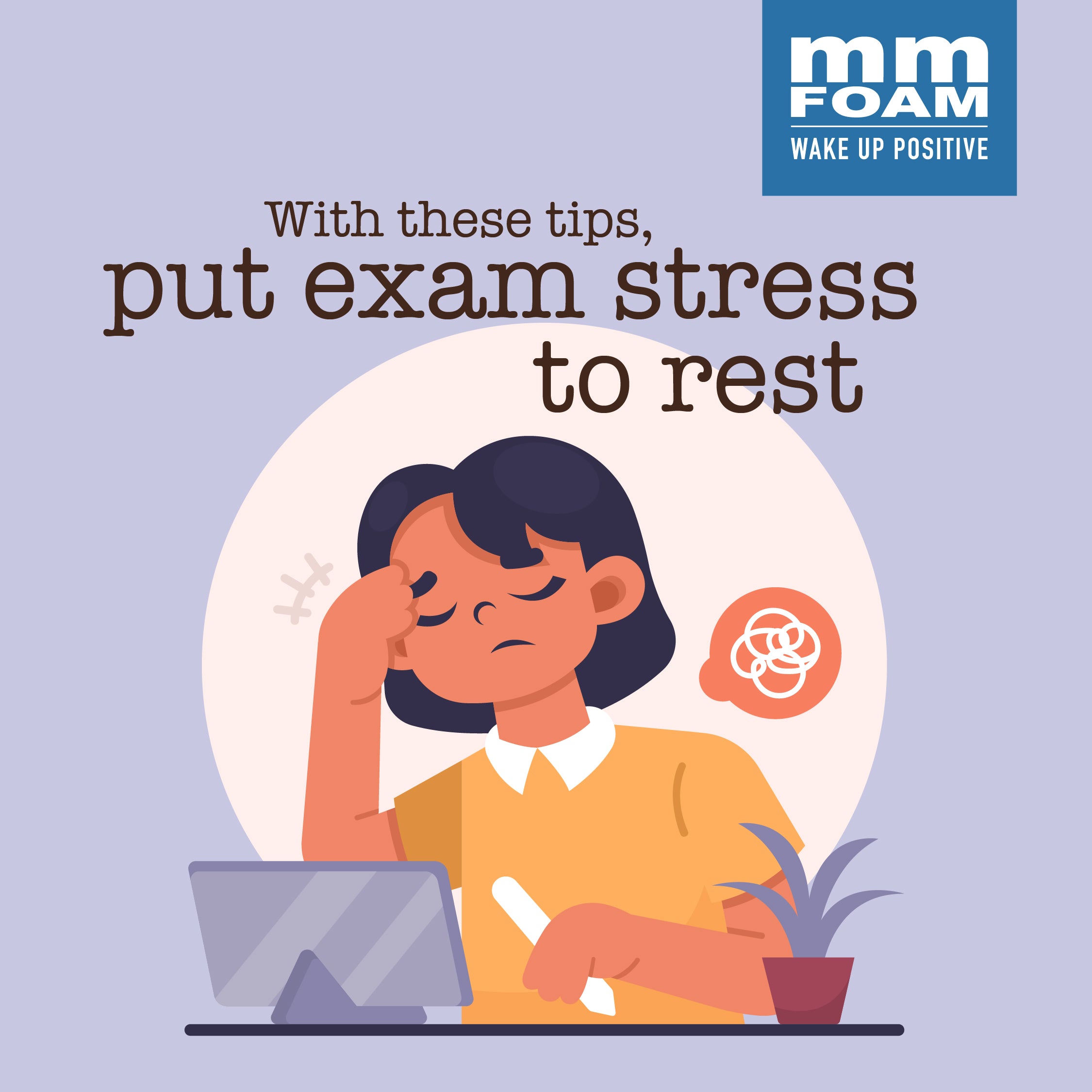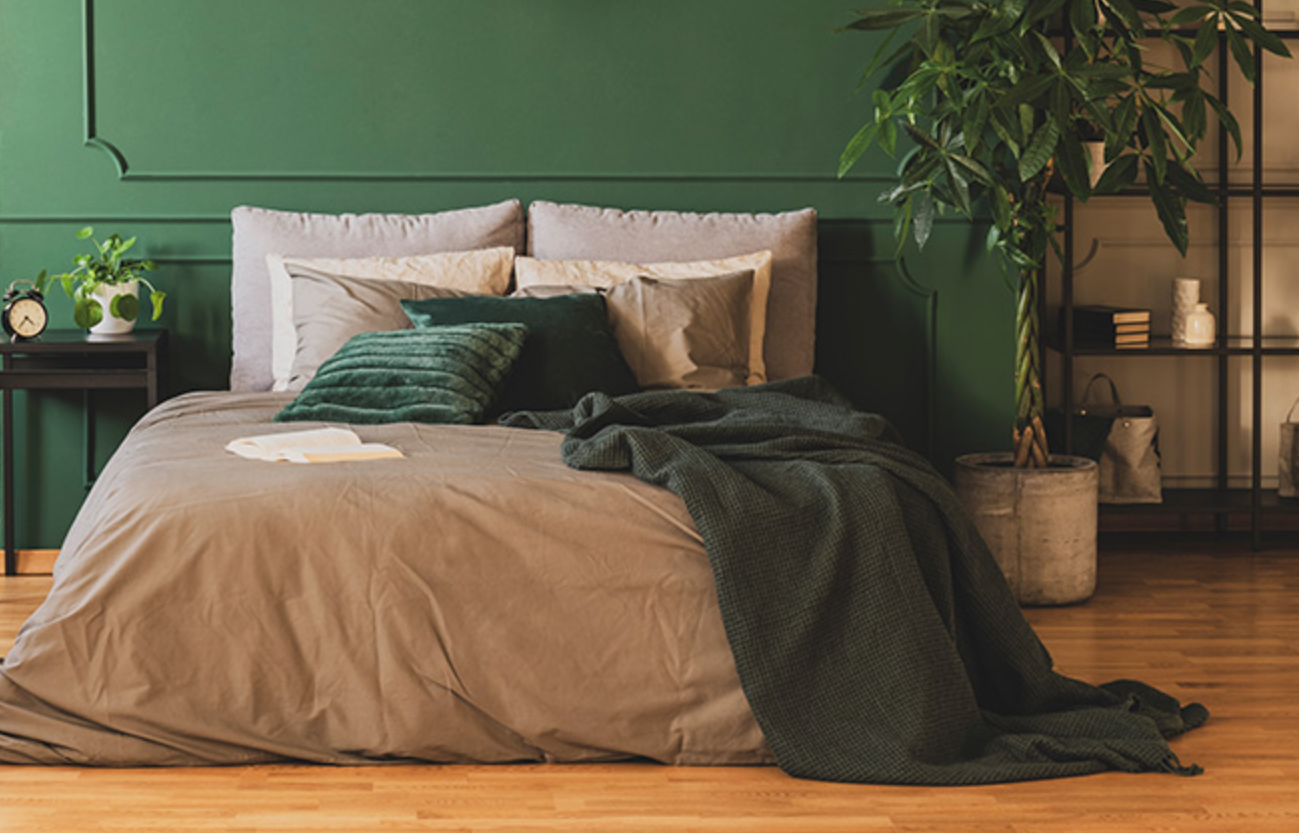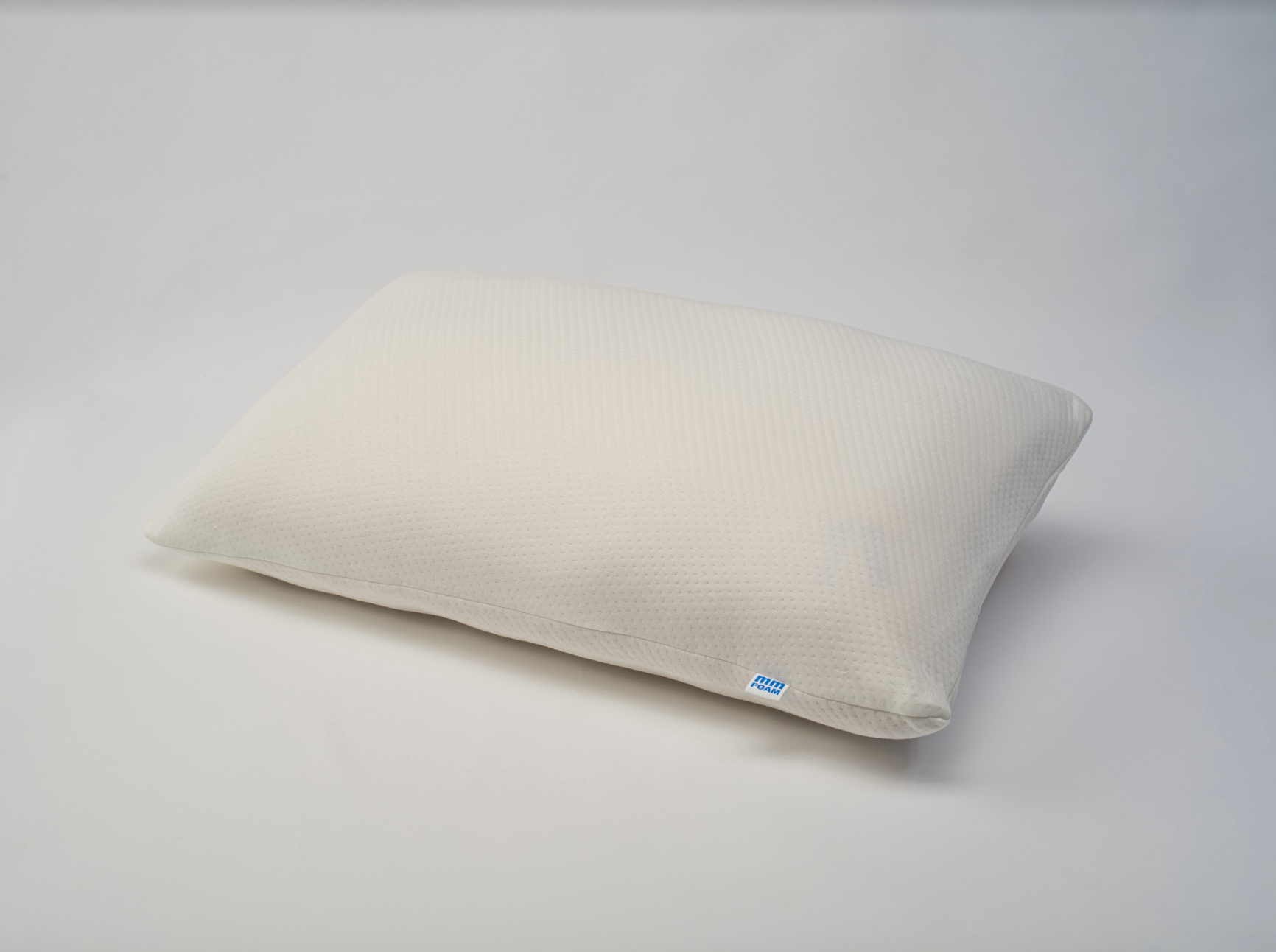Your cart is empty
Looks like you haven't added anything to your cart yet

Not sleeping well due to exam stress. Try these tips to sleep better.
“Don’t stress. Do your best. Forget the rest.”
People have been reiterating this famous exam quote over the years to relieve nerve-racking pressure and performance anxiety during exam time. But did you know this exam stress affects sleep and overall health of students?
Yes! Exam stress is real and affects many students. As per the NCERT survey, approximately 80% of students suffer from exam stress and anxiety (class 9-12 students) in India.
Though a certain amount of positive pressure is good for boosting your performance. However, when this pressure exceeds an optimum level, it causes various issues like sleeping troubles, and inability to concentrate and makes you prone to make mistakes. As a result, it might affect your grades and may have a negative impact on your exam performance.
Why is a good night’s sleep essential for students during exams?
Sleep is an essential aspect of our overall health and well-being. It plays a vital role in improving our mental and physical health. However, for students, it is common to have a late-night study routine to get good grades and stay ahead in the competition. Some students try late night cramming to store more information in their short-term memory for performing well during exams.
Sadly, this style and strategy do not offer any long-term benefits. It creates a counterproductive impact and may affect your ability to perform well during exams.
Experts suggest that a good night’s sleep is important for students during exams. It helps students stay focused, boost performance and reduce exam stress.
Tips for students to reduce exam stress and sleep better!
Pay proper attention to your bedroom environment
For students, it is tempting to engage with their mobiles or laptops on the bed for hours for academic and social things. This is one of the major causes of disturbed sleep for students. If you want to sleep better, then avoid using electronics or other gadgets in bed.
Furthermore, it is important to pay proper attention to your bedroom environment. Use dark curtains or blinders in the bedroom to create a dark and peaceful sleeping environment. Keep the temperature of the room at a comfortable level. Use good quality bed essentials like high-quality mattresses and pillows etc. to enhance the comfort factor.
Follow a relaxing bedtime routine
Follow a calming bedtime routine to unwind the day and release study pressure. You can include relaxing activities like taking a warm shower, listening to music or reading a book to relax your mind and calm your nerves. These things work as a major stress buster and allow you to rest better.
Follow a regular sleep schedule
It is easier said than done. But if you want to sleep better, then it is important to follow a regular sleep schedule. Try to be regular with your routine and sleep at a fixed time every day, irrespective of your exam schedule. This keeps your circadian rhythm in tune and will help you sleep and get up at the same time every day. A consistent routine not only helps in regular studies but improves your academic performance as well.
Eat healthy meals
It is tempting to eat chips, cookies, or other unhealthy snacks while studying for long hours. However, it is not ideal for your health. Research shows a high-fiber diet (including fruits, vegetables and whole grains) improves your sleep and keeps your immune system healthy.
If you want to improve your sleep quality, then try to eat healthy meals at fixed times. Avoid eating enormous meals and caffeinated drinks (like tea or coffee) before bedtime. Eat your dinner 2-3 hours before bedtime and go for a walk for easy digestion. You can drink a glass of warm milk before bedtime to improve your sleep quality.
Regular exercise
Next to a healthy diet, regular exercise is key to reducing exam stress and sleeping better. Regular exercise offers many benefits. It improves your mood, reduces study stress and improves your sleep quality.
Along with regular exercise, it is important to take breaks during the day while studying. Go for a nature walk or perform some simple stretches. These simple things make a vast difference in your physical and mental health and improve your academic performance, too. Exam stress affects sleep and healthy food with regular exercise can reduce the impact.
Practice mindfulness and stress relieving techniques (mediation, progressive muscular relaxation)
Since the time of the pandemic, stress and anxiety have affected many people, including students. Practicing mindfulness is one of the best ways to control unwanted negative thoughts and stay in the present. A recent study shows mindfulness offers plenty of incredible advantages for students. It improves attention span and reduces academic stress.
You can also explore various stress-relieving techniques, like meditation, creative visualization, and progressive muscular relaxation. These techniques help in releasing exam stress and help you sleep better.
Maintain a regular study routine and prepare well in advance
It is important to avoid procrastination and maintain a regular study schedule all year round. Preparing well in advance for exams is key to avoiding the last-minute rush. Keep up with your homework and assignments and be consistent with your study routine. This reduces exam stress and will help you sleep better during exam time. If exam stress is affecting your sleep, then it is important to follow these tips and if it does not improve, then it is time to contact your family doctor.
Ask for help
Exam stress can be overwhelming for many students and may cause serious mental and emotional health issues like depression and suicidal thoughts. If you are feeling an extreme level of exam pressure or facing any serious mental health issues, then do not bear it all by yourselves. Talk to your friends and family members and discuss your issues with them.
If needed, get a professional consultation to solve your problems. Counsellors and mental health professionals help you come out of troubling zones and guide you to deal with exam stress positively.- Choosing a selection results in a full page refresh.









